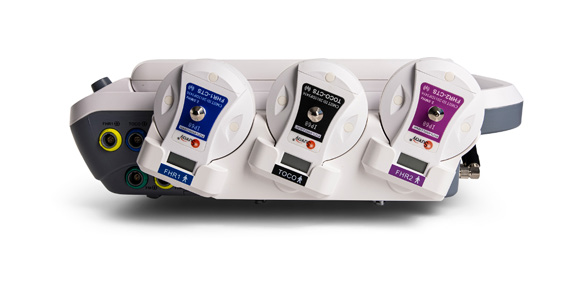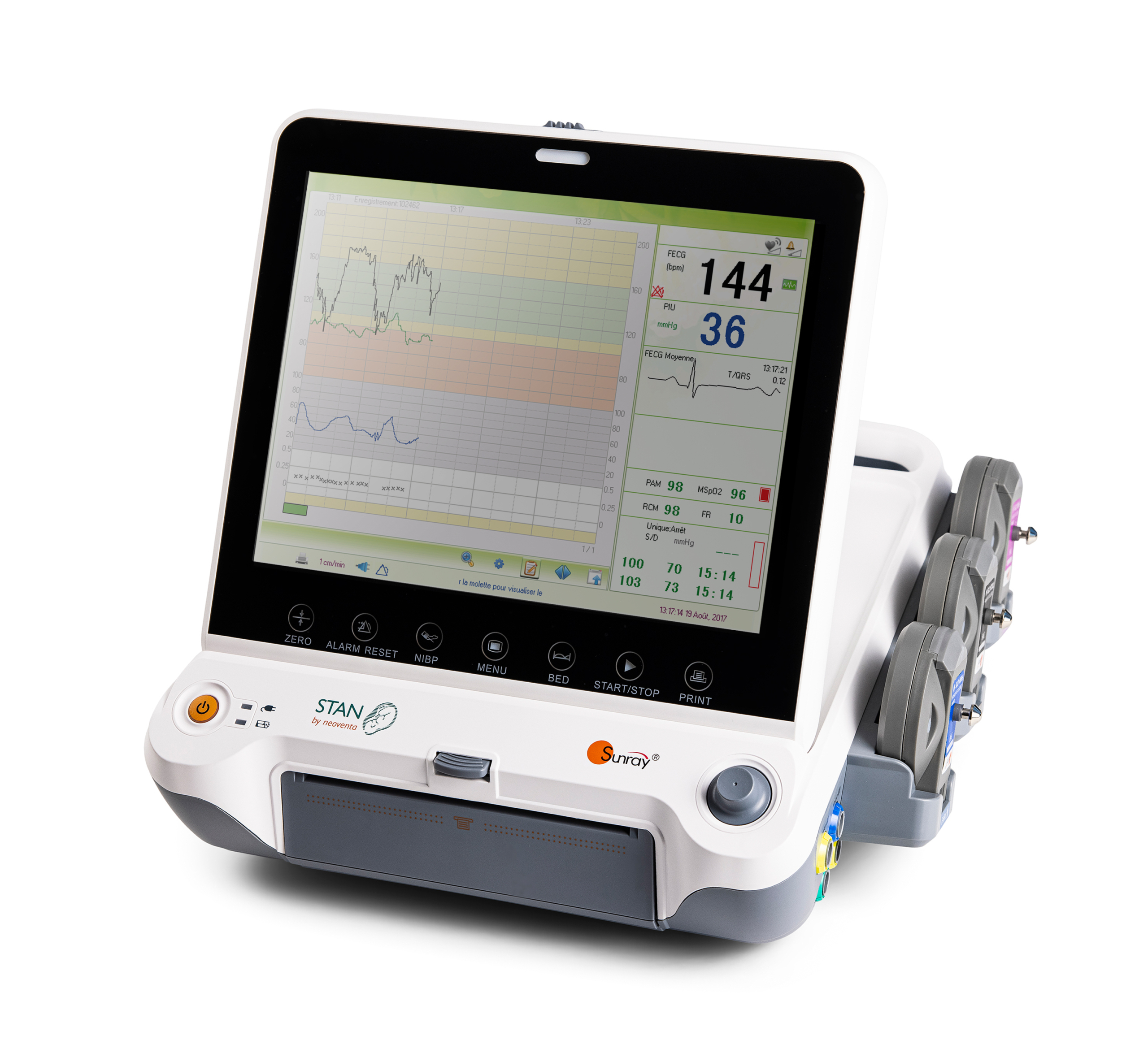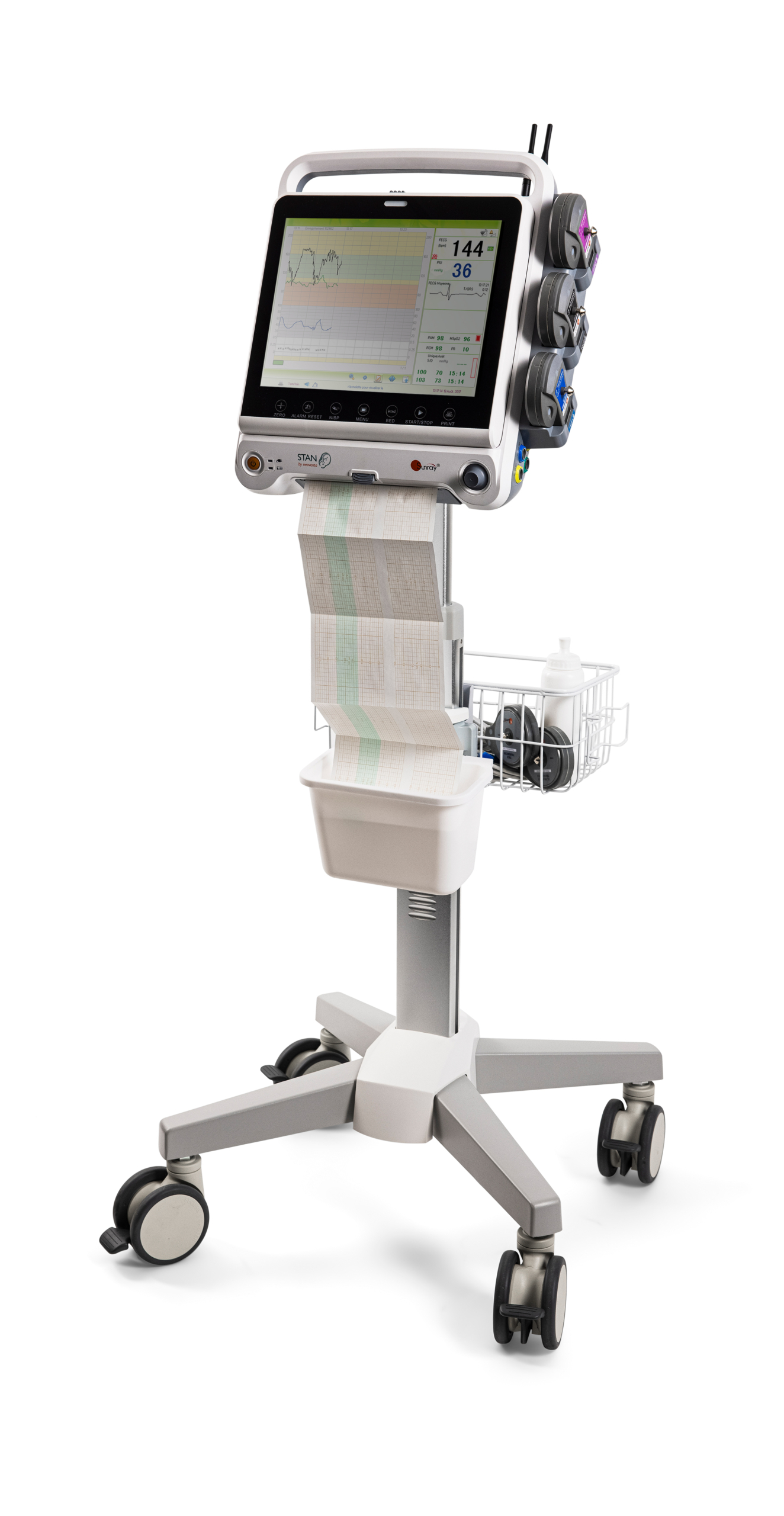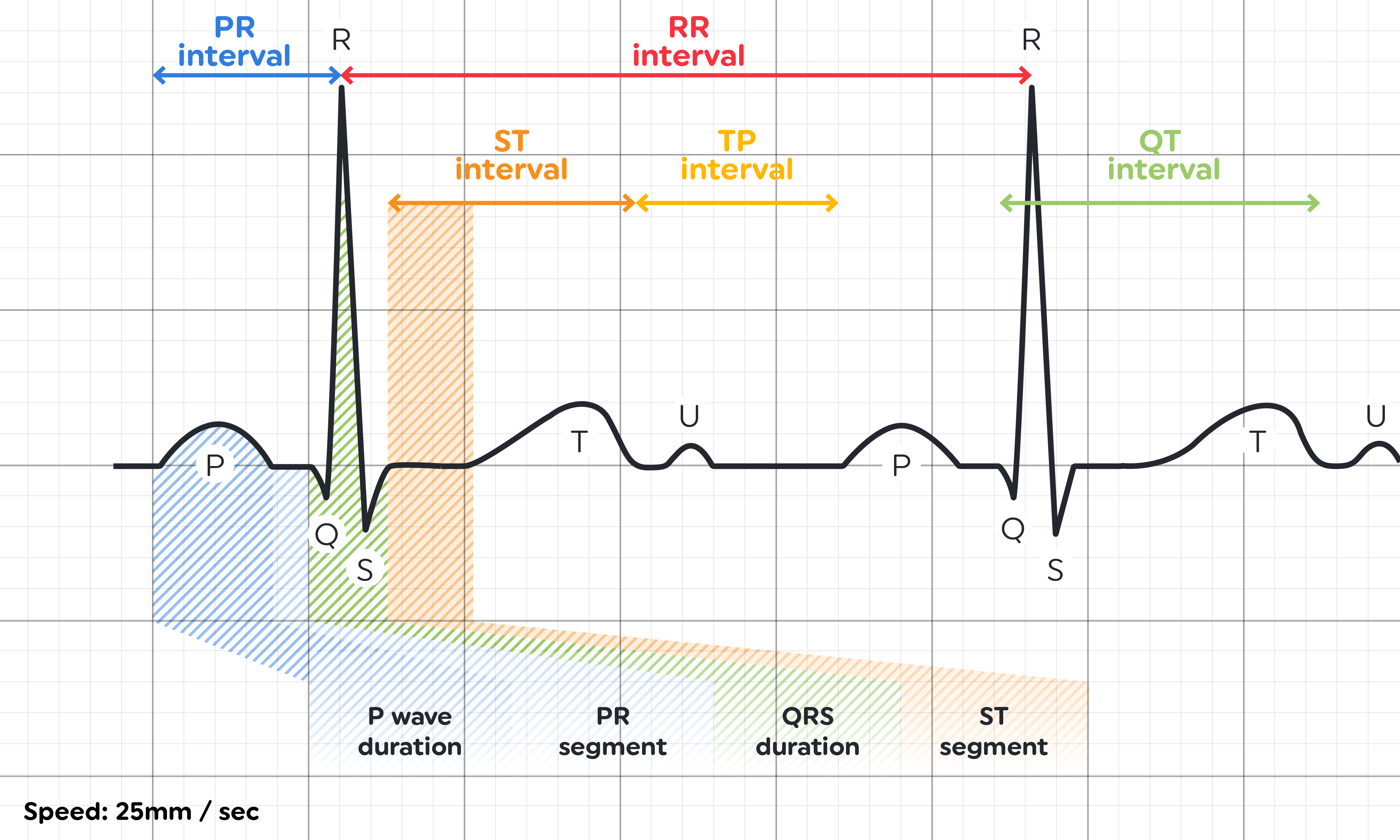STAN S41
The Neoventa STAN S41 is an advanced full featured CTG for monitoring both the mother and fetus during simplex and duplex antenatal screening, labor, and delivery. Adaptable and configurable with support for wireless and water-resistant monitoring, real-time waveform display and the ability to integrate seamlessly with the leading electronic medical record systems. The STAN S41 is fully compatible with the Goldtrace ® Fetal Spiral Electrode (FSE).
STAN S41 is the leading fetal monitor
The ST segment of the electrocardiogram is the isoelectric (flat) section between the S and T waves. During the period represented by the ST segment, the myocardial cells in heart are recovering from previous contraction (repolarization). During hypoxia, the energy balance within the myocardial cells is disrupted and the morphology of the ST segment changes causing an apparent elevation or depression of the isoelectric form. Consequently, changes in the ST segment are marker for myocardial ischaemia or infarction.
ST analysis is an important diagnostic tool for monitoring adult, adolescent and fetal electrocardiograms.
The STAN S41 is the only CTG offering fetal ST monitoring as a fully integrated diagnostic tool. The intended purpose of the ST analysis functionality is to reduce the incidence of fetal acidaemia and hypoxia by identifying these earlier and with greater sensitivity than would normally be possible with CTG alone.
Options

Wireless Aqua (433MHz) Transducer & Rack
Wireless Aqua (433MHz) Transducer & Rack Operates in the 433MHz frequency range which is suitable for underwater monitoring. The wireless transducers offer mobility during labor, with continuous CTG monitoring. It can also be used during indoor transport situations in healthcare facilities.

Wireless Transducer & Rack
The wireless transducers offer mobility during labor, with continuous CTG monitoring. It can also be used during indoor transport situations in healthcare facilities.

ST Licence
Provides the function of fetal ST Analysis. Registering, measuring and analyzing the fetal ECG changes based on the oxygen levels in the fetus circulation, from gestation week 36+0.
Training and Certification
For STAN S41 certification and advanced obstetrics and midwifery training contact Incarta.
References
Olofsson P. Current status of intrapartum fetal monitoring: cardiotocography versus cardiotocography + ST analysis of the fetal ECG. Eur J Obstet Gynecol Reprod Biol. 2003 Sep 22;110 Suppl 1:S113-8. doi: 10.1016/s0301-2115(03)00181-7. PMID: 12965099.
Norén HÅkan, RosÉn Karlg. Intrapartum ST Analysis. Fetal and Maternal Medicine Review. 2008;19(4):325-358. doi:10.1017/S0965539508002295
Amer-Wahlin I, Arulkumaran S, Hagberg H, Marsál K, Visser GH. Fetal electrocardiogram: ST waveform analysis in intrapartum surveillance. BJOG. 2007 Oct;114(10):1191-3. doi: 10.1111/j.1471-0528.2007.01479.x. PMID: 17877671; PMCID: PMC2239304.
Timonen S, Holmberg K. The importance of the learning process in ST analysis interpretation and its impact in improving clinical and neonatal outcomes. Am J Obstet Gynecol. 2018 Jun;218(6):620.e1-620.e7. doi: 10.1016/j.ajog.2018.03.017. Epub 2018 Mar 23. PMID: 29577914.



